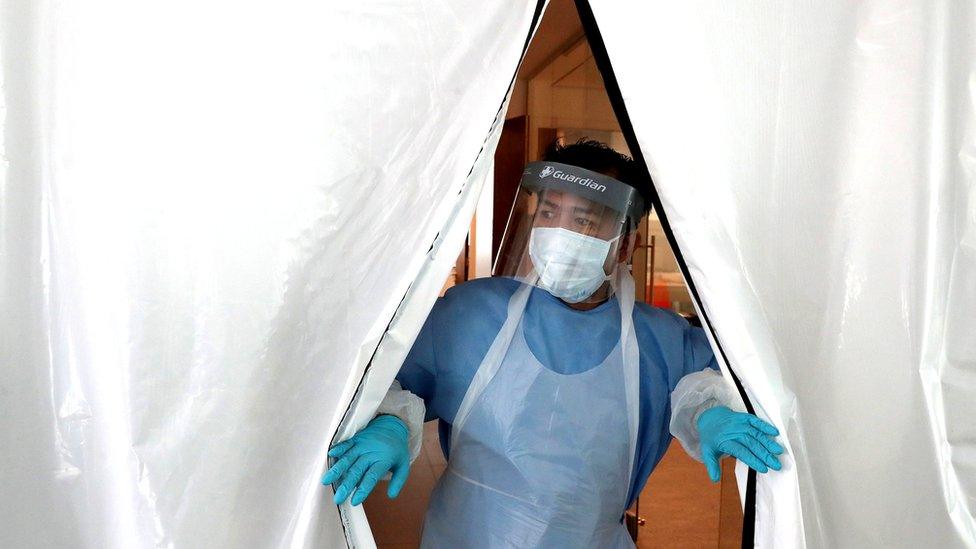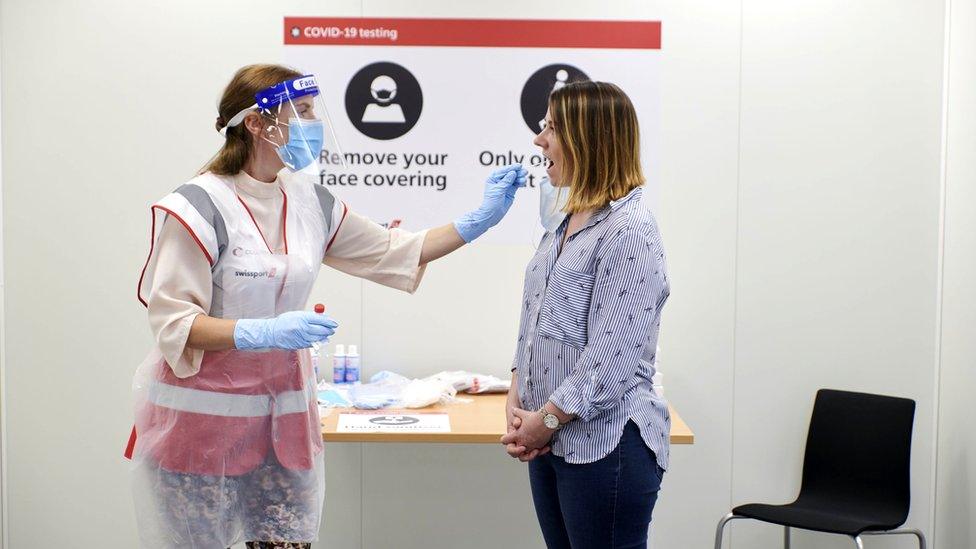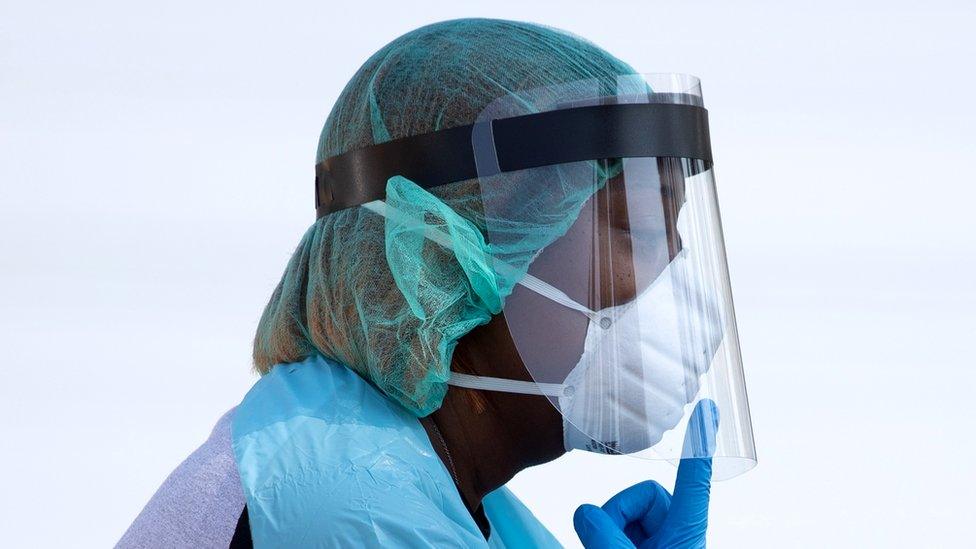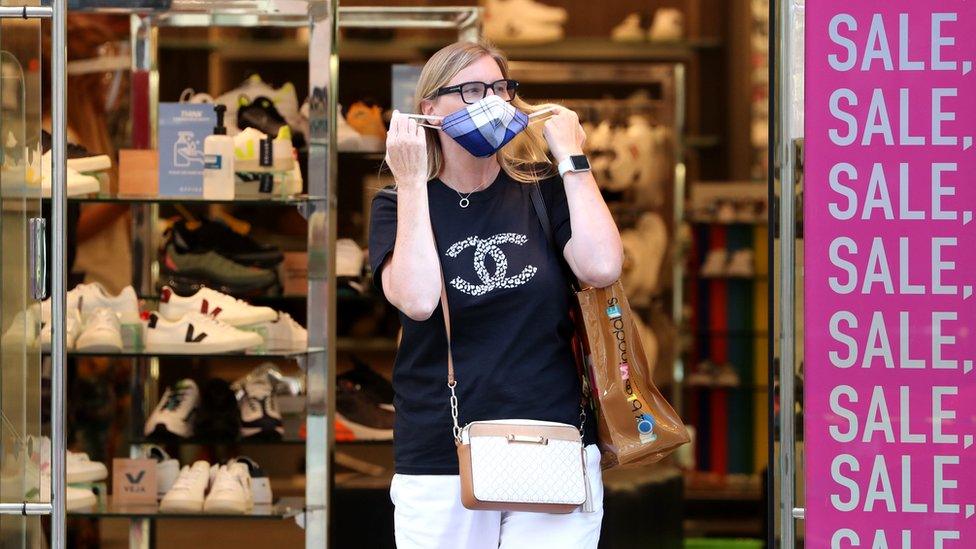Coronavirus: Scotland to join UK's biggest survey in September
- Published

The ONS infection survey is the most accurate indicator of infection levels in the community
Scotland will join the UK's coronavirus monitoring survey for the first time in September, external, creating a better picture of how the virus is spreading.
The ONS Infection Survey has been released weekly since May.
By testing thousands of people in households representative of the population, regardless of symptoms, it is the most accurate indicator of infection levels in the community.
This helps the government identify emerging outbreaks and respond to them.
The number of people taking part in the survey had been going up by about 5,000 each week, but the latest announcement, external increases this massively - from 28,000 to 150,000 people in England, and 15,000 people in Scotland when the survey launches there.
Health secretary Jeane Freeman said: "We know that meeting this challenge requires a comprehensive set of public health measures to drive the number of cases down - intelligence, anticipation, prevention, mitigation and response and clearly testing has a crucial role - it allows us to get ahead of the curve and track down and contain the virus as far as possible."

How can I take part?

Thousands of people in Scotland will take part when the survey launches in September
The ONS selects a random sample of households with the aim of being as representative of the country at large as possible.
But you will only be selected if you or someone in your household has taken part in an ONS survey before and agreed to be contacted, external.
If selected, you will receive a letter from IQVIA, a data company who are collecting the data on behalf of the ONS and Oxford University.
If you want to take part, you call the number on the letter to register.
What happens if I am selected?
A survey healthcare worker will visit your house and ask everyone there if they want to take part.
Anyone over the age of two can participate.
Swab tests will be self-administered under the supervision of the healthcare worker. Children under the age of 11 will be swabbed by a parent or carer.
The healthcare worker will also ask questions about your gender, ethnicity, date of birth, occupation and who your GP is.
If you are aged-16 or over, you may be asked when you call to register if you want to have an antibody test as well as the swab.
An antibody test can show if you have previously had the coronavirus infection by analysing a blood sample. A swab test will only show if you currently have the infection.
If you are asked for an antibody test and agree, a nurse will come to your house instead. They will take the blood, but the swab tests will still be self-administered.
Only 20% of adults will be invited to take an antibody test.
The visit takes 15 to 30 minutes.
How do I find out my results?

A nurse or healthcare worker will arrange to visit you at home
Your GP will be informed that you are participating in the study and the result of your swab test will be shared with them.
They can discuss the result with you.
Antibody test results, however, will not be shared with you.
The ONS says this is because the results of these tests are currently only used in research and not yet approved by the regulator. The blood sample will be tested by scientists at the University of Oxford, looking for levels of antibodies against Covid-19 in your blood.
What happens next?
You will be asked if you want to repeat the tests at a later date.
This is useful to see how exposure to coronavirus changes over time.


The bigger the survey, the easier it is to make predictions
Random, large-scale testing of people regardless of whether they are displaying symptoms is thought to be the best way of tracking how the virus is spreading in the community.
The bigger the survey, the easier it is to make predictions based on the data collected.
Prof Sir Ian Diamond, the UK's national statistician, said: "Vigilance is key to containing this pandemic and the extra data on the spread of infections and antibodies at local level will be invaluable to the planning of effective local responses."
He added: "Following this expansion, the ONS-led COVID-19 Infection Survey will be the biggest of its kind in this country."